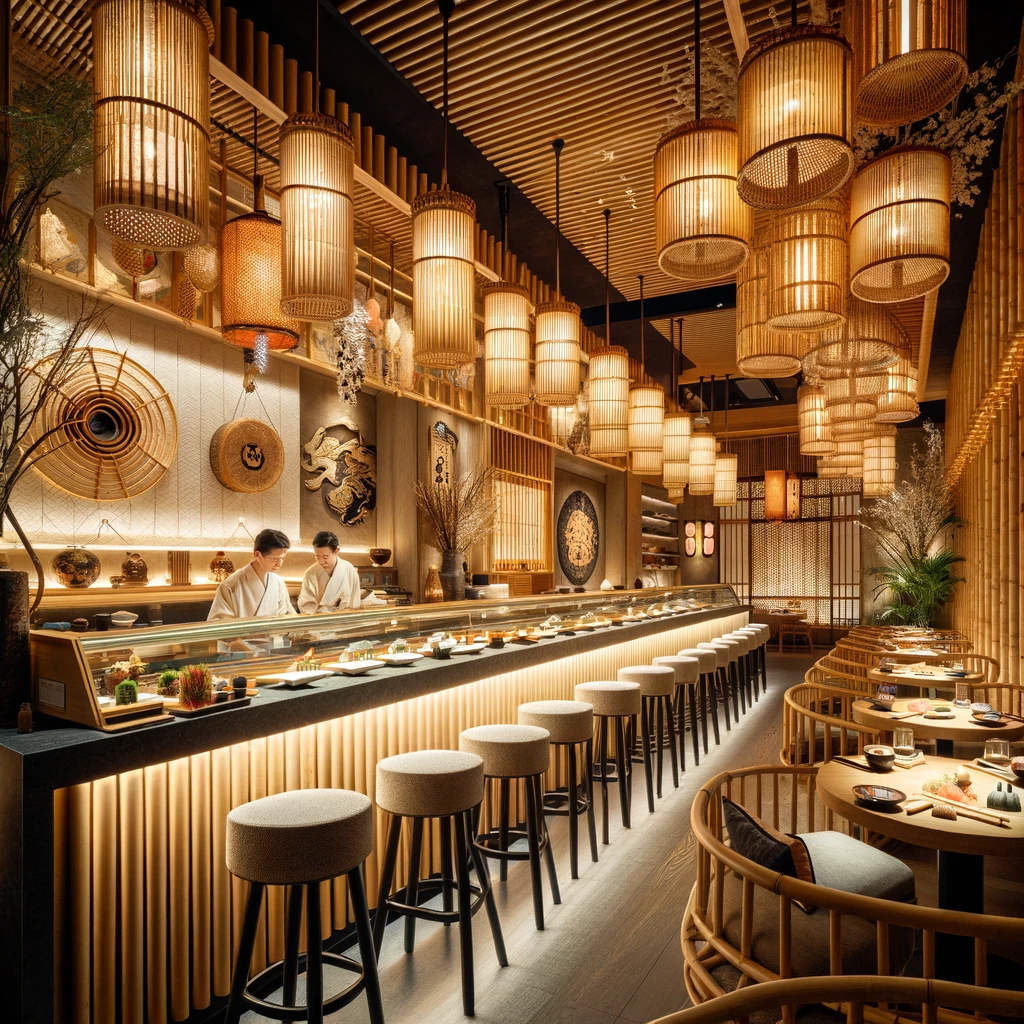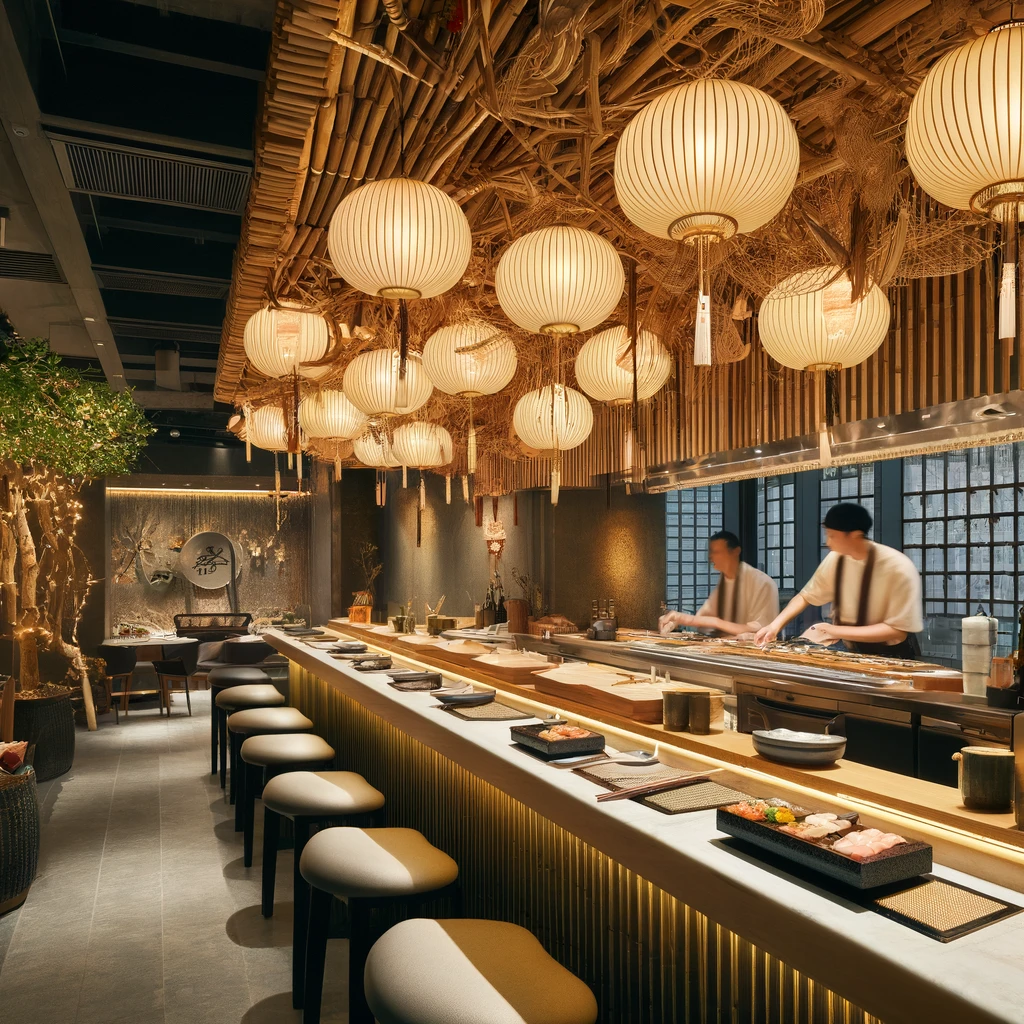The culinary landscape is often shaped by individuals whose passion and innovation leave a lasting impact on the industry and those who experience their creations. One such visionary was Ricky Cheng Wei-tao, the founder of the renowned “Itamae Sushi” and “Bancho Sushi”, whose recent passing marks the end of an era in the gastronomic world. This blog post aims to celebrate his contributions and reflect on the legacy he leaves behind.

Early Life and Culinary Beginnings
Born in 1967 in Shantou, Guangdong, Ricky Cheng moved to Hong Kong in the mid-1970s. His culinary journey began shortly after he dropped out of school in Form 4 to apprentice at local Japanese restaurants. This initial exposure was pivotal, igniting a lifelong passion for Japanese cuisine that would define his career. In 1989, after years of honing his skills in Japan, Cheng returned to Hong Kong, ready to make his mark.
Entrepreneurial Ventures
Cheng’s first significant entrepreneurial venture was the “Pancake House”, a chain of handroll crêpe shops he established in 1994 with his first wife. At its peak, the business boasted 20 outlets. However, as the pancake craze waned, Cheng pivoted towards introducing Japanese “Ajisen Ramen” to Hong Kong in 1996 through a franchising model, focusing on Kyushu-style tonkotsu ramen.
In 2004, the culinary scene in Hong Kong saw another revolution with the opening of “Itamae Sushi” at Granville Road, Tsim Sha Tsui, by Cheng and his business partners. It wasn’t long before “Itamae Sushi” became a household name, leading to the establishment of “Bancho Sushi” in 2007, which further cemented Cheng’s reputation in local and international gastronomic circles. Ricky Cheng Wei-tao
Triumph at Tsukiji Market
Perhaps one of the most dramatic highlights of Cheng’s career was his success at the Tsukiji Fish Market in Tokyo. Between 2008 and 2011, Cheng made headlines by winning the prestigious “Japan No. 1” auction for bluefin tuna for four consecutive years. These victories not only boosted his restaurants’ profiles but also demonstrated his commitment to providing top-quality sushi to his patrons.
Legal Battles and Health Struggles
However, Cheng’s journey was not without its challenges. Over the years, he faced several legal disputes with former partners concerning business operations and trademark issues. These legal entanglements, coupled with his battle with pancreatic cancer diagnosed in 2017, marked a period of significant difficulty in his life. Despite these challenges, Cheng remained dedicated to his craft and business, even expanding his culinary empire to include specialty stores like skewer and udon noodle restaurants.
Culinary Philosophy and Media Involvement
Cheng was also known for his engagement with the media, which played a crucial role in promoting his restaurants. He partnered with TVB to produce travel and food programs that showcased Japanese cuisine, further popularizing his business among food enthusiasts in Hong Kong and beyond. Ricky Cheng Wei-tao.

Legacy and Influence
Today, “Bancho Sushi” continues to operate several outlets in Hong Kong, a testament to Cheng’s enduring influence on the city’s dining scene. His commitment to quality and his innovative approach to Japanese cuisine have left an indelible mark on the industry.
Ricky Cheng Wei-tao’s story is one of passion, resilience, and innovation. His life’s work continues to inspire new generations of chefs and entrepreneurs around the world. As the culinary world mourns his passing, it also celebrates the rich legacy he has left behind.
Sources
Please note that the latest updates and information regarding Ricky Cheng Wei-tao’s career and legacy were primarily sourced from local news outlets and industry interviews. For more detailed accounts and updates, readers are encouraged to consult the following:
- Yahoo News – Detailed article on Ricky Cheng’s career and passing
- South China Morning Post – Features on Hong Kong’s culinary industry leaders
This blog post has combined these sources to provide a comprehensive overview of Ricky Cheng’s impact on the culinary world, his ventures, and the challenges he faced. His story is a reminder of how individual creativity and perseverance can transform industries and influence cultures globally.
For more content click here.

Deixe um comentário